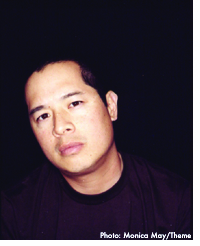author of the forthcoming “Who We Be: The Colorization of America“
What’s the piece of news this week that is forefront on your mind when you think about technology, policy, and the arts?
Lately I’ve been thinking a lot about cultural change and political change, and the relationship between the two. The events of the last month or so just bring back to me how crucial culture is in creating the conditions for political change. In Tunisia, a rap song by Hamada Ben Amor, aka El General, helped fire the young revolutionaries into the streets to topple the regime. And in Egypt the crowds in Tahrir Square and around the country were inspired by singing, street plays, poetry readings, and street art. All of this culture didn’t come from nowhere. Cultural change always precedes political change. The culture has been shifting and preparing those publics for these moments for decades.
Why do you think this issue is relevant to the arts community?
The arts have been treated badly by politicians, activists, and intellectuals. Demagogues condemn the arts as hell-bent on the destruction of the social order, and would leave the production of culture only to the marketplace. On the other hand, even those who support the arts often think of artists as “soft” actors in the drama of social change, unorganizable and unserious, as the velvet glove covering the fist. Artists only get the call when it’s time to raise money or to be entertained.
It is silly to think that people are only interested in change when the elections roll around. Politics is where some of the people are some of the time. But culture is where most of the people are at most of the time. If movements for social change don’t play in the cultural realm, culture-making is ceded to the marketplace and subject to the opponents of change.
Recently, the culture wars have been coming back: I think of Chagoya’s art being destroyed in Loveland, Wojnarowicz’s work censored by the Smithsonian, Bush’s media push-back against Kanye. If people concerned with change are not disturbed by the rise in the intolerance and suppression of artists, if they are not thinking about how to do cultural work to win change, their movements are already doomed.
What are some exciting things happening in the nonprofit arts sector with respect to policy?
I think that the nonprofit arts sector has been beginning to rethink culture in a broad way. In the past decade, culture was primarily seen as something that declining cities could cash in on to rebuild their deteriorating downtowns. But at the same time, we saw the rise of local organizations that straddled old definitions of community organizing and arts organizing, many in the youth sector, reaching broad new constituencies. All of that people power and infrastructure played a role in Obama’s election. As in Egypt, all that creative outpouring did not come from nowhere. Culture revealed the mass desire for change in the country.
But then when the Obama administration stepped in, it cast culture back to its place on the margins and the excitement dissipated rapidly. We’ve now reached a moment where the nonprofit arts sector can focus much more intently on what kinds of culture work does encourage and foster progressive change. It’s a time to assess lessons and invest in experimentation.
What do you see as a major challenge for the arts sector with respect to technology and copyright policy?
Balancing creativity with compensation, and making sure artists are compensated over corporations. It’s pretty clear that the system that exists now does not work well at all. From music-making to documentary film-making, artists have lost so much to corporations over the past two decades. In one sense, it’s more difficult than ever to see this problem clearly–we are bedazzled by the sheer volume of cultural products on offer. But I think we’re really at a crisis point. It’s hard to see how one can continue to do the work without becoming in some real sense an outlaw.
Anything you are working on that you would like to share?
I’m working on organizing writers, poets, playwrights, and journalists around immigrant rights in a group called Wordstrike. In times of economic dislocation, immigrants become the first target of those afraid of change. But there is no better time than now to be envisioning the kind of nation we really ought to be, and there is no better group of folks than artists to begin to outline those visions.
Follow Jeff’s work: Website, Twitter
(Photo by Monica May for Theme)

[…] Q&A: Jeff Chang What’s the piece of news this week that is forefront on your mind when you think about technology, policy, and the arts? Read more on Arts Journal […]